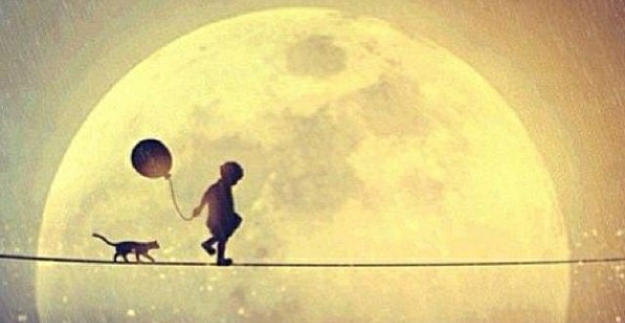We’re All Just Trying To Get Home
Four weeks ago, 39 members of our temple registered to travel to Atlanta, Birmingham, Montgomery and Selma. Our objective was to retrace the steps of America’s Civil Rights Movement and ask ourselves, as Jews and as human beings, what those moments in American history teache us and what they challenge us to do with our own lives in the months and years ahead.
Of the 39, however, only 16 of us actually got there. We had traveled (or tried to, anyway) the day of a big snowstorm that shut down most of our roads and airports here in New York. And since I’d told everyone to travel on their own, that we’d meet up at 9:00 pm that evening at Baggage Claim in the Atlanta airport, some of us got there and, sigh, some of us didn’t.
It is truly a bizarre notion that any of us should think our experience stranded in the Westchester Airport could come anywhere close to having as much meaning and significance as our compadres who spent their weekend down south. But what can I say? We were moderately stunned and utterly delighted by what transpired in all those hours waiting for a plane that never appeared.
We were having such a good time not flying to Atlanta (which, you should understand, was not simply about being grounded but about enduring a dozen or so 45-minute delays in our flight, kind of like slowly boiling a frog). Anyway, we were having such a good time with each other – talking, snacking, musing at the odds of our actually getting where we were going – that some people nearby asked if we were having a family reunion. When they were informed we were a synagogue, they responded that their synagogue isn’t nearly as much fun. I made a bee-line over to them and for the next half-hour regaled them with my best recruitment strategies.
But here’s the thing. It wasn’t just us. Everybody was calm and relaxed. We were all just waiting, perhaps grateful that during all of the truly miserable weather we were in the airport and not out in traffic trying to get to the airport. At any rate, something very special happened in that terminal, and it became a metaphor for a very similar “something” we wish we could see happen across our nation.
Twice this week, someone has said to me, “You see the way people are behaving? That doesn’t have to happen. Something’s definitely taken hold of our country. Suddenly, it’s more acceptable to behave like that.” In the one case, it was a comment on the rise of bigoted speech and hateful acts toward people of color. In the other, it was how men treat women. Because the leader of this country behaves in such an immature, selfish, and abusive manner, his actions are being seen as granting permission to do the same elsewhere.
Which is exactly the opposite of what we were supposed to have learned from the Civil Rights Movement. So much blood was shed, so many good lives ruined, because people thought it was acceptable to treat people this way. It took decades and decades but finally, laws were passed, and standards of human behavior were imposed upon even the basest of our citizens, and life got better everywhere.
It’s not that the problems ended, but we made a lot of good progress. More was needed. God knows, far too many white people find it acceptable to treat those of color disrespectfully. Far too many straight people object to providing equal treatment under American law to lesbians, gays, bisexuals, transvestites, those who are questioning their gender or the sexual identity, and more. Far too many men find it acceptable to mistreat women.
At our borders, America’s persistent racism and xenophobia not only block the way for those who are seeking a better life for themselves and those they love, but we are actively mistreating them, taking children away from parents, turning people away without the due process that even non-citizens are promised in our Constitution, and generally expressing the unfounded, distasteful assertion that America is better off without immigrants.
Finally, or at least for the purposes of tonight, there is the issue of voting rights. This primary and most important expression of citizenship is being hindered by those who seek, under the guise of protecting the integrity of America’s election process, to suppress the ability of the working middle class and of minority communities to either qualify to vote or to be able to get to the polls during working hours.
The current administration, in the White House and in Congress, have amply demonstrated that the Civil Rights Movement is nowhere near conclusion. Like becoming B’nai Mitzvah, in which no 13-year old has actually reached adulthood but we celebrate that their journey toward adulthood has just begun, we should take pride in the advances our country made with the passage of the Voting Rights Acts of 1964 and 1965 and other laws that help end discrimination, but we must understand that the journey has only just begun.
This morning, with a lively group of students over at the Shames JCC, I rehashed the Brett Kavanaugh Senate confirmation hearings. Someone asked what good it does, two months later, to look at any of these materials. My response was that I doubt any of us would have any impact on the aftermath of those hearings, except that (and this is important) we might go home and not only live lives of more determined commitment to fairness and truth, but we might teach a bit more of that to our children and grandchildren, and we might share these ideas, or simply model them, in our interactions with our community. In that respect, our learning is not only worthwhile, it’s vital to the increasing well-being of our nation.
Back on our (alleged!) Civil Rights Journey, at Friday around noon, when the airline finally committed to canceling our flight, we slowly made our way to the exit doors, weaving our way through the many individuals and groups still hoping that their wait would result in getting someplace else that wasn’t where they’d just been. I needed to break through a row of passengers who were hoping that the line in which they were standing would actually lead to a seat on an airplane, and I asked one woman to allow me through, explaining to her, “I’m trying to get home.” And for the first in nearly twenty-four hours, the response was impatient, nasty and devoid of sympathy as she hissed, “We’re all trying to get home!”
And with that, I remembered the real world, one that disappoints with all-too-customary regularity but that often pleasantly surprises us with the large number of good, fair, understanding men and women who won’t ever give up on efforts to create and maintain civilized communities for everyone.
This week, commenting on Vayeshev (Genesis 37:1–40:23), my beloved teacher Rabbi Larry Hoffman wrote about a particularly favorable view of Jacob’s seemingly preferential treatment of his son Joseph. The preference, rather than the usual (!) gift of a technicolor dreamcoat, involved Jacob’s teaching his son the wisdom of our Jewish tradition. According to 13th century Spanish commentator Jacob ben Asher, Joseph was instructed by his father in five of the six sections of Mishna, our earliest Torah commentary. “But why only five,” Rabbi Hoffman asks. “Because purity (the topic of the sixth tractate) cannot be learned through classroom study; it comes from within and requires lifelong practice.” [“A Nuanced Approach To Conversion,” The Jewish Week, Nov 30, 2018]
Purity, he says, is “the effort to lead a stainless existence.” A wholesome existence, one devoted to goodness and to love. And for that, one must see such values in action.
America is a bold experiment in “purity,” in building a world based on mutual understanding and respect, and the right to live freely without fear of restrictive government. At its best, America has fostered community after community where people of differing backgrounds can live together in security and peace. At its worst, that definition of community has been reserved only for some and has excluded others.
Each time that members of our synagogue — whether teen or adult — participate in the Civil Rights Journey, we retrace the steps of America’s struggle to build such communities, and strengthen (we hope) our shared passion for, and commitment to, this great American experiment.
That lady who snapped at me at the airport, she was right. In the end, we really are all just trying to get home. May we choose the paths, the journeys, that lead homeward for the greatest number of us. It’ll take hard work; no one’s ever been naive about that. But in the end, it’s the greatest and most important journey of them all.
Shabbat shalom.
======================
Words to close out the service:
Rabbi Joseph Edelheit, Professor of Religious and Jewish Studies at St. Cloud State University in Minnesota, wrote a commentary on Vayigash that centers around Judah’s efforts to save the life of his youngest brother, Benjamin.
Once, Rabbi Edelheit explains, we were called Hebrews, literally, “the other,” the people from over there, from the other side of the tracks. Then we became Israel, descendants of Jacob, the God wrestler. In time, however, we identified ourselves, and still do, as Jews, the descendants of Judah.
Why? Because in Vayigash, Judah, who had formerly joined his brothers in rage against Joseph, here he engages in an act of profoundly selfless initiative to save his family. “Judah is our namesake,” Rabbi Edelheit writes, “because he understood that he could not repeat the indifference that had defined him” — indifference horrifyingly expressed when the brothers threw Joseph into a pit and then sold him into slavery.
While we are the descendants of some who have behaved appallingly, committing crimes of jealousy and abandonment, we’re also the descendants of those who have performed great acts of contrition and humanitarian excellence. It is because of those deeds, noble conduct that conquered the worst that was in us and honored the best that is in us, we became Jews.
It is our sacred honor – as members of this Jewish people – to live lives dedicated to fighting indifference wherever we find it, and to never again stand by when others are thrown into a pit.
Everyone is just trying to get home. Life works best when we help each other do just that.
Billy


Scott Newman
Glad this journey is alive and well. Yay!